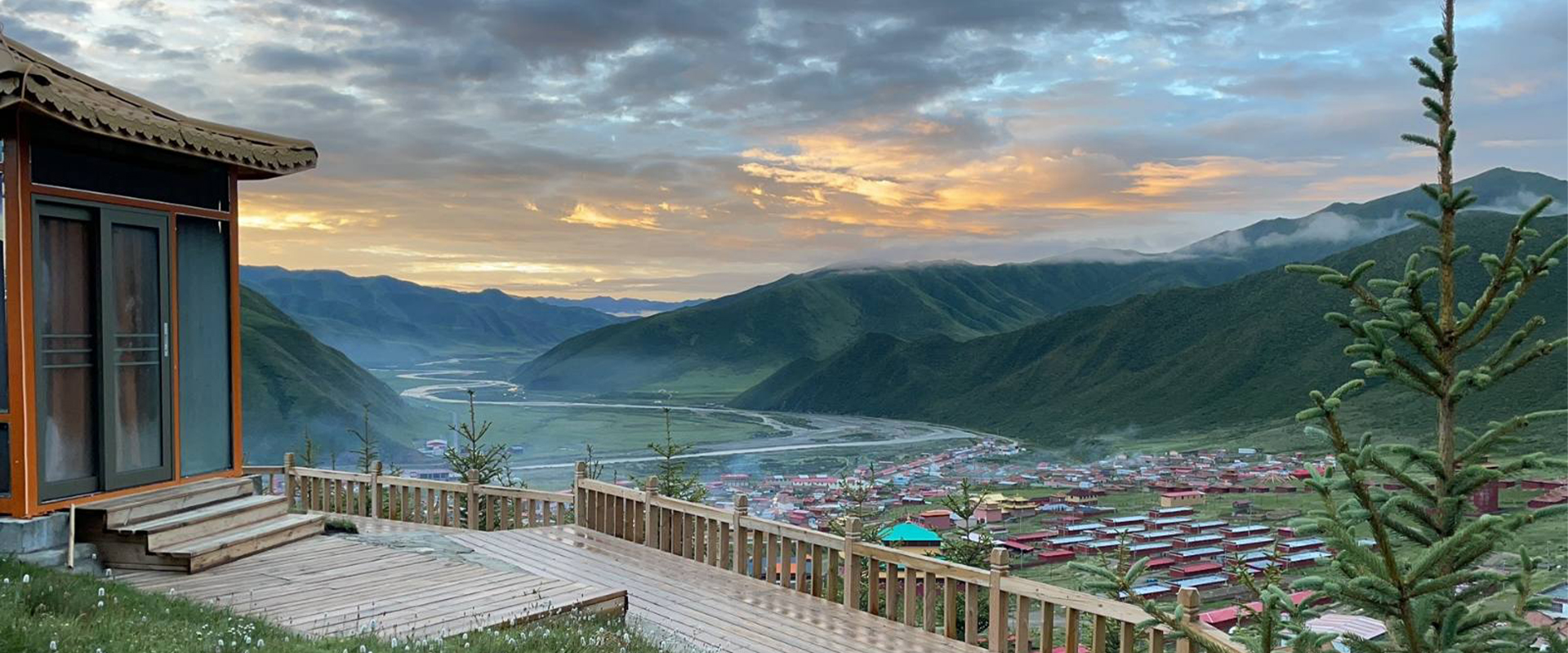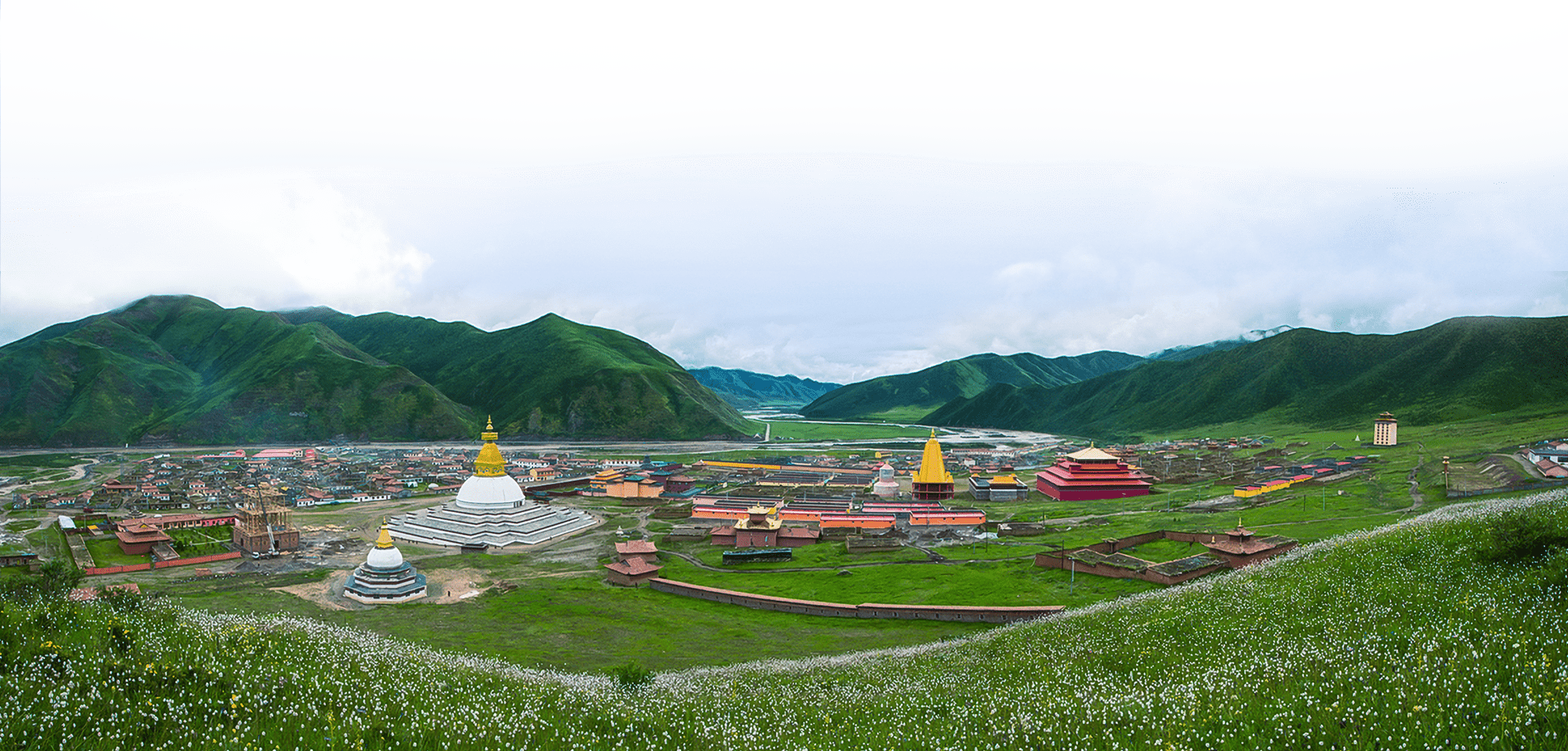Love and Peace
To all my Dharma friends in the East and West,
At this time, we have obtained a human body that has a human existence in this world. When we have the pleasant and unpleasant experiences of human beings we express different states of happiness and unhappiness. We are like children who wander through happiness and unhappiness, laughing and smiling one moment and crying the next.
What is the cause of our happiness and unhappiness that change like the clouds in the sky?
There are many ways to answer that question, but according to Buddha Śākyamuni we should recognize that these various states of happiness and unhappiness are results from good, bad, or neutral karma. If we analyze and investigate this answer correctly we will gain a profound understanding that is in accord with the true nature of things, and therefore this is something that everyone should seriously think about. It is important to do so because the path of correct reasoning brings us certainty.
It is said that in this universe there are six realms of existence such as the hells. The devas and us humans are considered to have higher or better existences because of the thoughts and behavior we have, just as we cane see the difference in thought, conduct, and happiness between us humans and those in the animal realm.
How do we bring out the specific qualities and special attributes of a human existence?
If in our human existence the specific qualities of our motivation and conduct are limited to eating food, taking care of families, having sexual intercourse, and being angry with each other, then we will not be any better than animals. We can see that animals also take care of their offspring, and they sustain their lives by killing and eating each other. Therefore, we as humans should have a superior existence through our good motivation and good conduct.
This world of ours is said to be a human world, the realm of human beings, and as it is a human realm it should be a realm that is brightly colored by love and peace. The human race has grown through love, especially the love of mothers. Without thoughts of love and friendliness the face of human happiness would vanish.
Love is like a seed and love is like sunlight, through which the flowers of happiness and peace grow. The beauty and power that results is the most important thing for us to seek.
A human life that has love as its foundation will be serene and a life spent within the walls of love is life that we can trust.
It has been established through research that those who in this world cause harm to people and bring ruin and destruction to wealth and property are like that because they were deprived in their lives of a loving upbringing and did not receive a loving and well-motivated education.
The great religions that humans believe in and have faith in all teach that there are paradises and hells as well as the human world. In comparison to a paradise this human world is not so pleasant but compared to the hell realms it is rich in happiness.
Isn’t it taught that this human world is a place where one can plan for rebirth in paradise through doing good actions?
The hells are terrifying places where beings are burned alive, boiled alive, flayed alive, and cut to pieces while alive. It is a world where beings suffer unendurably through their flesh being torn and their blood being drunk while they are still alive. That kind of suffering of the hell realms should not be found in the paradises or in the human world.
In this present time in our human world there is an increasing lack of thoughts and actions of love and peace, while every day the thoughts and actions of greed and malevolence become more widespread.
We can all see in recent years how everywhere in the world animals are made to suffer terribly. We have all seen how animals such as birds and dogs, pigs and cattle, snakes and frogs, fish and shrimps, spiders and scorpions, camels and horses, and so on, are burned alive, boiled alive, flayed alive, chewed on while alive, their blood drunk while still warm, and their skins are worn as clothing.
In places devoid of good law and without education there are those who burn people alive, cut off their heads, and so on, causing people to experience inconceivable fear and suffering before they die.
That is not acting like a human being. Human beings should be drawn towards love and mutual respect.
If human beings act without love and compassion they become killers of animals and beings and will eventually become the same as the torturers in the hells or the same as wild beasts. The lords of the dead, killers, wild beasts are in essence those who destroy the lives of others, and who consume nothing but warm flesh and warm blood.
It is evident that within Buddhism there are those who say one can eat meat and those who say that one should not. However, through honest, careful detailed examination of the Buddha’s teachings one can see that both the higher and lower yānas, the sutras and the tantras, have the same viewpoint. It is taught that one should rely on the meaning and not the words, and accordingly one can see that the Buddha forcefully prohibited his followers from eating the flesh of beings.
In the vinaya there are both teachings on eating meat and not eating meat, but primarily there are many admonitions to the sangha that they should not eat meat. He primarily gave his permission to eat meat only when there was a famine or when someone was ill and also gave some people permission to eat meat because otherwise they would not be able to enter the Dharma. Other than that he emphasized that when they were healthy and in good circumstances the sangha should not eat any meat because they wished to.
In Tibet in earlier times vegetables and so on were very rare and as there was nothing else to eat people were accustomed to eating the flesh of cattle and sheep. In the Buddha’s teaching there is no question as to whether one can or cannot eat meat apart from when it is a necessity for sustaining life. So, you might wonder why even now Tibetan lamas, tulkus, khenpos, and monks eat so much meat. It is because of their strong habit from the past and it is difficult to change the frame of mind of enjoying and desiring meat.
The mahāyāna teaches that we should see all beings as our parents and we should always care from them with love, compassion, and the precious bodhicitta. Moreover, it teaches that the attainment of liberation and enlightenment cannot be attained except through meditation on love for all beings.
Also, non-violence is the nature of the Dharma and violence is the opposite of the essence of the Dharma. Therefore, if you do not pay any heed or give importance to the subject of eating meat, wearing skins and so on, then that will also have the nature of harming beings.
The principal goal of the Dharma is the suppression and elimination in ones heart of thoughts that come from the five poisons. If desire, anger, and so on were the source of happiness for the human race then there would be no need for the Dharma in this world. However, all our unhappiness and problems come from craving, resentment, and other thoughts from the mental afflictions. Therefore, there is a great need for the Dharma, which is the supreme remedy that will diminish the problems that we have as humans. In order to accomplish the purpose or the power of the Dharma it is not enough to teach it, we must also put it into practice.
It is the nature of samsara that when there is something auspicious there will be an obstacle to it. There are unceasing flames of envy towards those we know, those we are connected with, who are equal to us, or a little higher, or a little more good looking, or a little more famous, and so on. The poisonous air of envy rises and the poisonous thorns of envy grow between leaders, lamas, masters, khenpos, men, women, the rich, and thieves.
We have seen how Tibetan and other kinds of Buddhism are spreading widely throughout this world. At the same time, we can observe the signs that various traditions and schools are becoming increasingly worried and afraid on seeing their own domains shrinking and their pupils diminishing in number and when Dharma masters afflicted with old age criticize others and say many unpleasant things about them, it is because they have lost control of their bad behavior as a result of becoming intoxicated by the poisonous drink of envy.
The kind Buddha taught again and again that the era when desire, anger, and envy are widespread is a degenerate era. It is a time when beings fall under the power of mental afflictions, ignorance and wrong views, and therefore during this time we should never stray from the training that subjugates desire and anger. The Buddha taught that we should reject bad actions, which arise from desire, anger, and ignorance, and we should practice good actions, which have love and compassion as their nature, and we should tame the mind that contains desire, anger and ignorance. This is the true way of practicing for those who have faith in the Dharma.
If two women who follow the Dharma are envious of each other, that is worse bad karma than if just two ordinary women were envious of each other, and it is an even greater bad karma for someone who is practicing the mahāyāna to have envy. Whether someone is a Dharma master, a tulku, a leader, or so on, whoever they are they will certainly become stained by envy. It is extensively taught within both the mahāyāna sutras and the tantras that anyone who with envy and disrespect speaks wrongly, speaks badly, or criticizes a bodhisattva or someone who is practicing in their heart the view of the profound bodhicitta, then that person will have enormously bad karma.
To declare that the kalyāṇamitra is the source of the path, is the tree that bears the fruit of the paths and bhūmis and is the ground on which the flowers of good actions grow is to grasp the essence of all the Buddha’s words and their commentaries.
It is taught that the lama, the kalyāṇamitra, is the one who reveals to pupils the path to all goodness and happiness, and therefore he should be considered more important than anyone. Therefore, if a lama gives us the refuge vow, or gives us the mahāyāna vows, or gives us the instructions for developing the bodhicitta, then that kalyāṇamitra has become our lama and we should cherish him like we do our eyes and heart and revere him respectfully. If we do not respect such a kalyāṇamitra, and say unworthy things to him, and so on, then we will have such a great bad karma that in this life or in all our future lives it will hurl us into the pit of the lower existences. This is the viewpoint of all the sutras and tantras and therefore it is something you should not forget.
These brief words on the subject of the Dharma have come from the depth of my heart, particularly for all the men and women that I have a Dharma connection with in the East and West of this world and were written with a genuine, good motivation in beautiful California in the west of America on the 19th of May 2016 by the one who is called Rigdzin Hungkar Dorje.
————–
On Rinpoche’s FB 19.05.2017.









